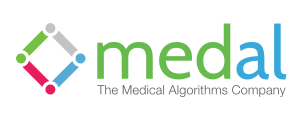Historically, medical knowledge has been hard to come by, taking years of study. While this knowledge may be available from many sources it can be complex and is often hard to access or utilize quickly. Because of these and other factors medicine has evolved into specialized silos of knowledge and care is delivered by specialists who operate within these silos. To patients, these specialists seem unengaged and distant because they are struggling with complex problems.
Challenges Tracking Down Patient Information
For clinicians, finding information about patients is often difficult. A significant part of a clinician’s day is spent (or wasted) tracking down bits of patient information scattered across many different sources. Trying to quickly find key pieces of medical knowledge can be equally frustrating.
The availability of the complete electronic health record (EHR) and automated medical algorithms can change this status quo. Medical knowledge and patient information can now be available instantaneously to the clinician. This has a number of implications, not the least of which is how medicine is practiced.
EHRs and Automated Medical Algorithms Provide Just in Time Medical Knowledge
The concept of just-in-time logistics has revolutionized manufacturing. Rather than rely on warehouses to stockpile materials (and to tie up capital), parts can now be distributed just before they are needed while maintaining quality and productivity.
In the same way, medical knowledge and patient information can be supplied to the clinician “just-in-time” for an encounter. Many problems handled by specialists are not that complex if the right information is available. Most patients come with recognizable triggers – complaints, diagnoses, medications, laboratory findings. By selecting appropriate triggers the most relevant algorithms can be made available, often completed using data already available in the electronic health record.
This carries a number of implications for medical practice. A physician may be able to expand the scope of practice, meaning that patients won’t have to see so many specialists. Problems can be addressed in fewer visits. The clinician can focus on interacting with the patient rather than worrying about the details. The physician can keep an eye on the big picture rather than become ensnared by minutiae. This can make clinical encounters more efficient and rewarding for everyone.
Another change will be the attitude towards medical knowledge itself. In many situations the knowledge will no longer be needed for some time, and so can be discarded. There is no need to hold on to obscure information since it can always be found again whenever it is needed.
It is a mistake to think that that little room has elastic walls and can distend to any extent. Depend upon it, there comes a time when for every addition of knowledge you forget something that you knew before. It is of the highest importance, therefore, not to have useless facts elbowing out the useful ones. –Sir Arthur Conan Doyle, A Study in Scarlet.

